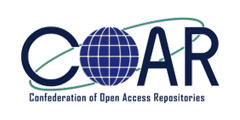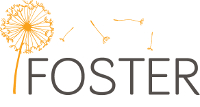The proposal of Open Science is to foster new approaches to research and scholarly communication. It represents a composite concept, due to the various topics covered and, most of all, for the cultural change implied. It may be summarized using four keywords: networks, data, cooperation, and transparency.
Even though the road ahead is still long, in these years many initiatives have been promoted for the affirmation of Open Science as the future paradigm of science. In Europe, the European Commission firmly support and sustain the OS principles, especially through the development of the European Open Science Cloud and the financing of the frameworks Horizon2020 and Horizon Europe.
Horizon2020 represented the first financial support of the EC to achieve the goals of Open Science. Starting from 2021, Horizon Europe is the new framework through which the EC is following the path set in the previous years, with significant implementation aiming at earning Open Science the status of the new paradigma for science.
Open Access and Open Data are the two main applications. Open Access tackles the shortcomings of the current publishing system, while Open Data opens to the dissemination of the "raw materials" of research. The other contents supported by Open Science entails the opening up of learning materials, the sharing of research methodologies such as open notebooks, a radical change in research assessment and peer-review, the opening up of science to citizens.
Practicing Open Science means being aware of the alternatives proposed and the tools available. Bianca Kramer and Jeroen Bosman (Utrecht University) sketched the "Rainbow of the open science practices", i.e. guidelines to demonstrate how it is possible to make open every step in the research process:
- Altmetrics for alternative measures of the impact
- Twitter to communicate on social media
- Figshare to share posters and presentations
- Creative Commons to use open licenses for self-archiving and publishing on open journals
- PubPeer or F1000 to try the open peer-review
- OSF, Arxiv o Biorxiv to share pre-prints
- Jupiter o CoCalc to apply machine-readable formats
- Overleaf o Autore for collaborative writing
- Protocols.io to share protocols and workflows
- Jupyter to share lab-notes, data, and code
- GitHub to share software code
- Dryad, Zenodo o Dataverse to share data
- OSF o AsPredicted to pre-record experiments
- Hypothes.is to make comments on webpages
- Zotero for shared bibliographies
- RIO Journal to share research projects
The European project Foster 4 Plus proposes relevant guidelines for Open Science. The project has elaborated an interesting infographic to explain the concept of Open Science and its principles.
More information and details are provided by the organizations here below.

OpenAIRE is the major infrastructure for the monitoring and the assessment of the OA policies financed by the EU from 2009. OpenAIRE links the results of the research projects (papers, data, software, etc.). Nowadays supplies 16 funders in Europe and worldwide, supports Open Science in all its aspects through the network of National Open Access Desks (NOADs). To know more about ...
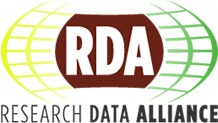
RDA - Research Data Alliance is an international organization whose members gathers during scheduled meetings with the purpose of facilitating data sharing and reuse. RDA members are organized in spontaneous and voluntary interest groups gathering twice a year during the Plenary meetings. The RDA European chapter is constituting a network of national nodes with the project RDA Europe 4.0, with the purpose of bringing the needs of national communities in RDA and viceversa. The project finances the participation in RDA through different types of grants. To know more about ...
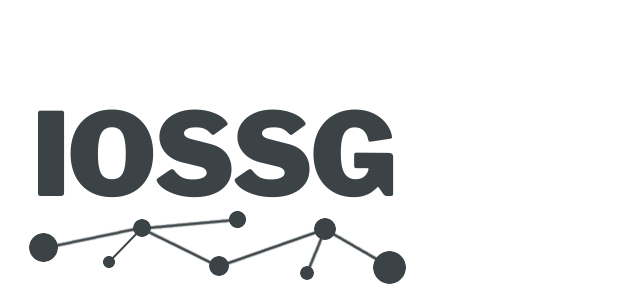
IOSSG - Italian Open Science Support Group is a working group gathering different academic representatives, born from the cooperation between professionals with different competencies in the areas: research support, digital libraries, Open Science, law, ICT. Participants come from Open AIRE, University of Milan, University of Venice - Ca' Foscari, Politecnico Milano, University of Turin, Bologna University, University of Trento, University of Parma, University of Padua, University of Wien, University of Trieste. The subscription to IOSSG is on voluntary basis and does not imply any involvement at institutional level. To know more about ...

ICDI (Italian Computing and Data Infrastructure) is a forum created by representatives of major Italian Research Infrastructures and e-Infrastructures, with the aim of promoting sinergies at the national level, and optimising the Italian participation to European and global challenges in this field, including the European Open Science Cloud (EOSC), the European Data Infrastructure (EDI) and HPC. To know more about...
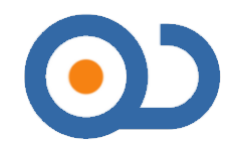
AISA - Associazione Italiana per la Scienza Aperta (Italian Association for Open Science) is a no-profit organization whose purpose is to disseminate the values and principles of open access to knowledge through the promotion of activities like: papers on Open Science principles; organization of educational activities, networking, participation in research projects, submission of proposals for legislative initiatives to sustain Open Science, etc. To know more about ...
COAR is an international association composed of 140 members and partners worldwide representing libraries, universities, research institutes, national funding agencies, etc. COAR gathers communities and networks of repositories to build innovative services and infrastructures, align practices and policies and give voice at global level to the communities working with repositories. To know more about ...
The Scholarly Publishing and Academic Resources Coalition (SPARC) is an organization that collaborates with other actors of scientific communication (authors, publishers, libraries ...) to promote open sharing of research results ...To know more about...









